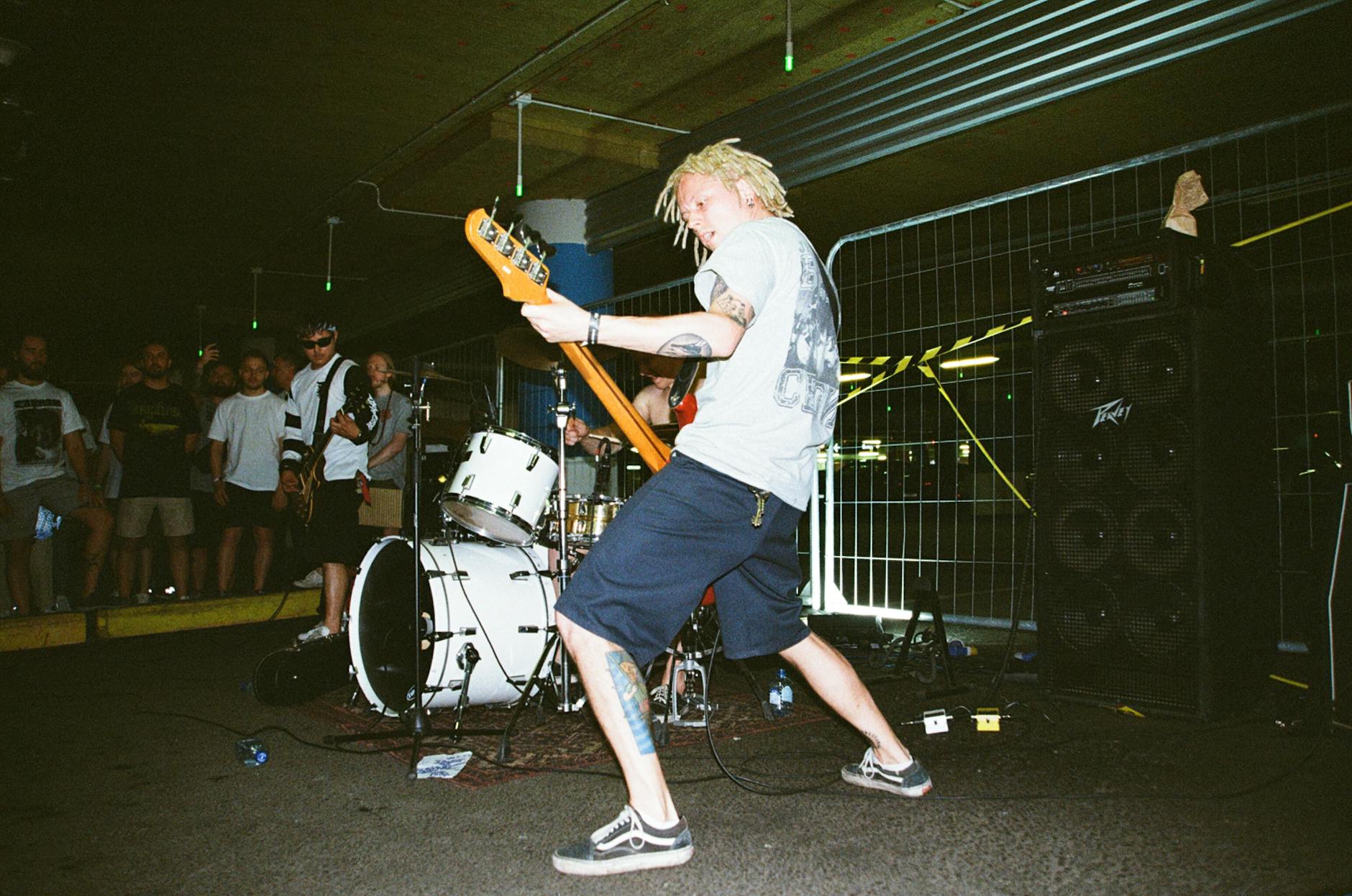In recent years, a unique phenomenon has emerged that is shaping the landscape of the music industry: experimental guitar festivals. These events draw in diverse crowds, featuring a myriad of innovative musicians who push the boundaries of traditional guitar playing. Attendees often leave inspired and invigorated by the fresh sounds they encounter. As these festivals gain popularity, a pivotal question arises: are they revolutionizing the music industry in ways we are just beginning to understand? This blog post explores the transformative impact of these gatherings on artists and audiences alike, highlighting their vital role in the evolving music scene.
Throughout the following sections, we will delve into the surge of experimental guitar festivals, the thriving sense of community they foster, and the creative outlets they provide for solo and collaborative musicians. Additionally, we will analyze how these festivals contribute to the evolution of music itself, inviting both new and seasoned artists to explore uncharted territories. By the end of this post, it will be clear that these festivals are not just events; they are catalysts for change, providing important opportunities for growth and innovation within the music industry.
Over the last decade, the rise of experimental guitar festivals has been nothing short of astonishing. These immersive gatherings provide artists and fans with a platform to explore the avant-garde, driven by a collective curiosity about what music can become. Unlike traditional music festivals that often focus on pop or rock genres, these events celebrate unconventional approaches to the guitar, revealing the instrument’s vast potential. Artists are encouraged to break free from the constraints of commercial appeal, enabling them to experiment with soundscapes that challenge the very nature of music.
This trend reflects a growing desire for authenticity and innovation within the modern music scene. Audiences seeking fresh experiences are flocking to these festivals, eager to discover undiscovered talents and sound explorations. The success of events around the world demonstrates an undeniable appetite for new music experiences that prioritize creativity and experimentation over mainstream success. As a result, these festivals not only reignite the passion for guitar but also serve as a beacon for what the future of music could look like through the lens of innovation.
One of the most striking features of experimental guitar festivals is their ability to create a tight-knit community among artists and attendees. Musicians from diverse backgrounds converge to share ideas and techniques, ultimately leading to collaborative performances that can be breathtaking in their depth and complexity. This synergy between performers fosters an environment of creativity that is both nurturing and inspiring. Participants often leave these events with new friendships, networks, and collaborative opportunities that transcend the boundaries of the festival itself.
Furthermore, the sense of belonging that arises in these environments encourages attendees to explore their personal relationships with music. Collectively, these communities inspire individuals to think outside the box, embracing the experimental nature of their own musical identities. With a foundation built on creativity and collaboration, the impact resonates beyond the festival stages, encouraging participants to share their own innovative endeavors with the world. This network of artists and fans creates a ripple effect that ultimately reinvigorates the entire music landscape.
As artists interact with diverse styles and approaches within these festivals, they inevitably push their creative boundaries. The spirit of experimentation present at these events encourages musicians to take risks, facilitating an evolution in their artistry that often yields unforeseen results. Audiences experience a broader spectrum of sounds, feeling not just entertained, but also thoroughly engaged with the artistic evolution on display. They witness firsthand how experimental techniques can breathe new life into familiar musical paradigms.
This creative evolution is essential for musicking, as it challenges preconceived notions of what guitar music can achieve. Each performance is an opportunity not just for self-expression but also to contribute to a larger dialogue about the future of sound. In doing so, artists serve as pioneers in a constantly shifting landscape, inspiring the next generation to take their own risks and explore their creative voices. This cycle of inspiration fuels the continued growth of experimental guitar music, ensuring that it remains a vital part of the music ecosystem.
Ultimately, experimental guitar festivals function as a catalyst for change within the music industry. By prioritizing innovation and artistic freedom over commercial success, these events empower musicians to carve their own paths and explore new avenues of expression. They spark conversations about what truly constitutes music and encourage both artists and listeners to rethink the creative process and its underlying motivations. The emerging talent and fresh perspectives showcased at these festivals challenge the norms, breathing new life into a music industry eager for transformation.
By facilitating connections between artists and their audiences, these festivals lay the groundwork for a vibrant ecosystem that thrives on creativity. This allows for a broader range of music to flourish, enhancing the diversity of sounds available to listeners. As this movement continues to gain momentum, it raises important questions about the future of music and the ways in which artists can reclaim their narrative in an ever-evolving industry. The inspiring sense of possibility created by experimental guitar festivals might just be the revolution music needs.
What types of artists participate in experimental guitar festivals?
A wide array of artists participate, ranging from avant-garde musicians to seasoned performers eager to explore new techniques. The focus is on innovation and creativity, allowing all musicians with a passion for experimentation to join in.
How do experimental guitar festivals affect mainstream music?
These festivals push the boundaries of traditional genres, influencing mainstream music by incorporating innovative techniques and ideas. The artists often return to the larger music scene with fresh perspectives that encourage mainstream musicians to explore new soundscapes.
Are these festivals accessible to new musicians?
Absolutely! Many festivals actively welcome emerging musicians, providing them with opportunities to showcase their work alongside established artists. This openness creates pathways for growth and development within the music community.
Image Credit: Pexels
